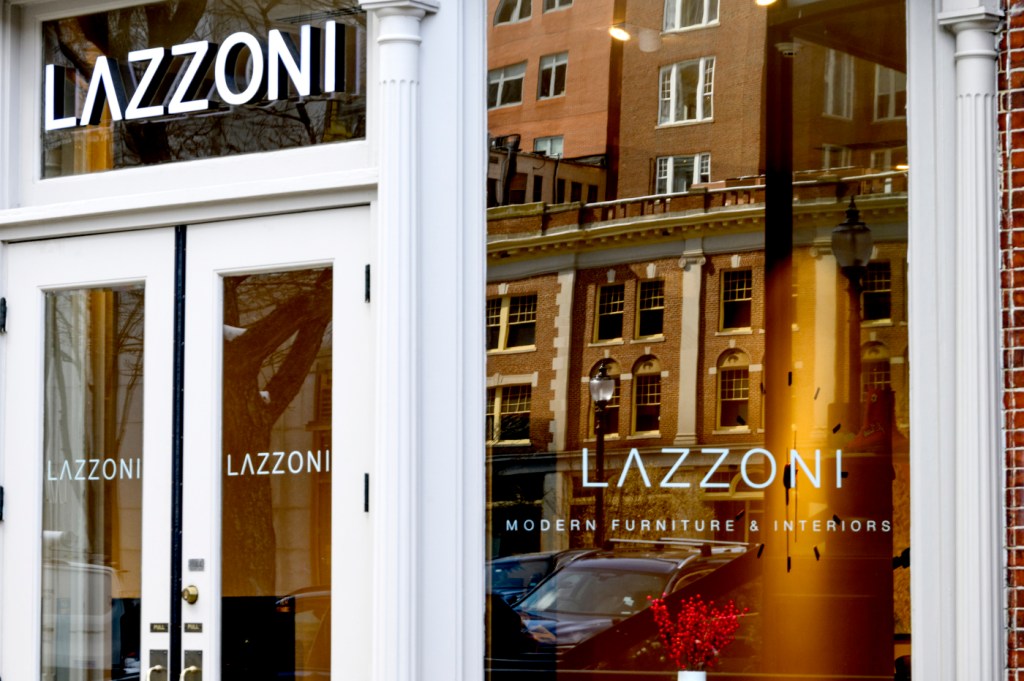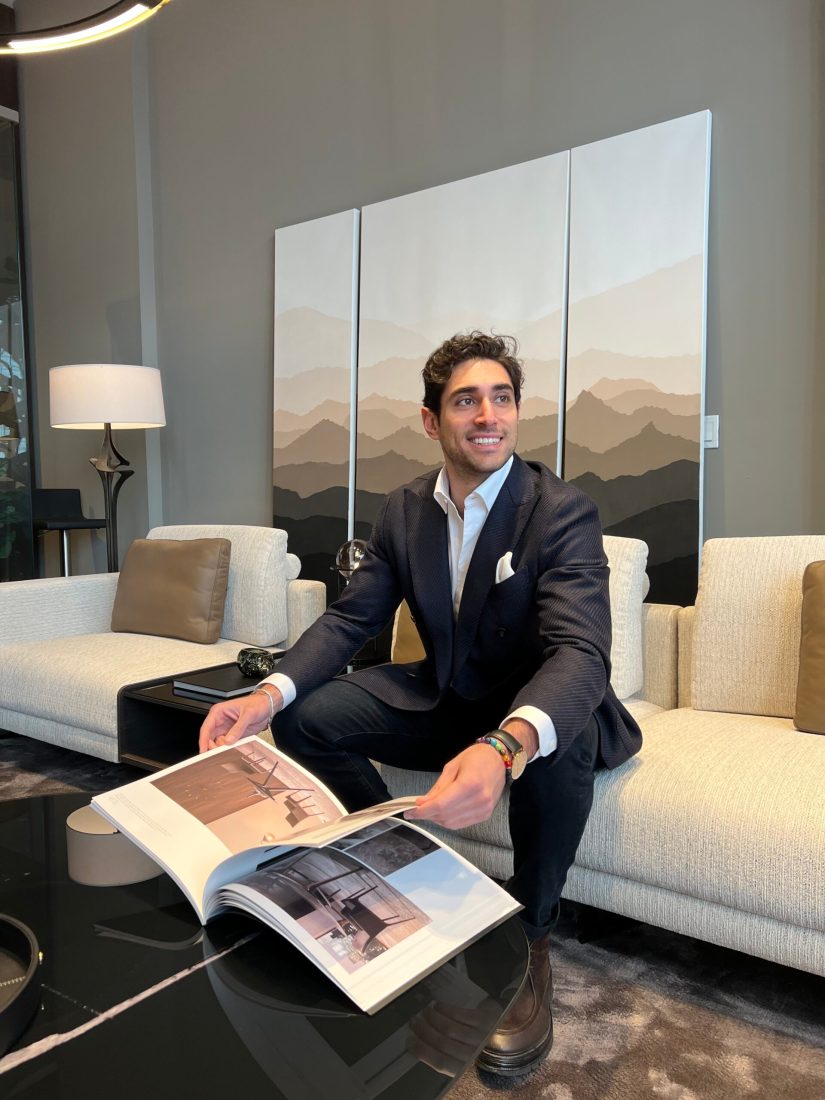‘Hopefully, it will be a globally known brand.’ Graduate using his Northeastern education to grow family’s furniture business

Inside 75 Newbury St. in Boston, a sleek, modern furniture store has extendable dining tables, contemporary TV units and customizable sofas.

Behind the Lazzoni furniture store showroom is Northeastern grad Os Berke Kababulut, who is working on expanding his family’s Turkish furniture business worldwide.
“Hopefully, it will be a globally known brand,” Kababulut, 27, says. “Maybe not in five years, but in 10 years … would be the goal.”
The business has evolved over four generations of a family—beginning with Kababulut’s great-grandfather. A craftsman in the Black Sea, his great-grandfather specialized in building Serander houses or all-wood homes built on stilts due to the large amount of rainfall in the region.
He taught his art to Kababulut’s grandfather, who moved from the Black Sea region to Ankara, the capital of Turkey. Later Kababulut’s grandfather Osman opened his shop in the 1960s, creating modular kitchen cabinetry. Kababulut’s father followed his lead and started Lazzoni, a modern furniture store with one-of-a-kind handcrafted vintage pieces.
Lazzoni opened its first location in the U.S. in New York City and now has 10 showrooms in the country and about 35 globally. Expansion plans include the U.K. and Canada.
The store’s name comes from Laz, the ethnic tribe of the family, Kababulut says. Lazzoni means owned by us, in the Laz language.
Ever since childhood, Kababulut was exposed to the business. Kababulut and his older brother, who is now 34, were “brainwashed” into joining the business, he joked.
“When I was 10 years old, I would go to the factory over the summers, whereas most of my friends would be out somewhere on vacation or even hanging out,” Kababulut says. “Our summers would consist of going to the factory, sweeping the floors, cleaning, getting exposed to the whole atmosphere—the manufacturing atmosphere.”
He chose Northeastern, specifically for the business and supply chain management majors—areas he noted needed business improvement. The supply chain exposure taught him how to get goods shipped across the globe efficiently, and classes in entrepreneurship helped him write business plans for growing the company in the U.S.
“We recently opened up Boston, which was amazing,” says Kababulut. Ever since he graduated in 2018, he dreamed of opening a showroom in the city. Being on Newbury Street is especially special because it is the street on which he spent most of his time during college.
The business is now looking to open a second location in nearby Newton.
Expansion of the showrooms means growing a loyal customer base, Kababulut. The majority of new clients come from walk-ins.
“Our bread and butter are our retail showrooms,” Kababulut says. The rest come from working on hotels from St. Regis in Qatar to Hilton in Croatia, and the Big Urban Stay in Istanbul.
The company has nearly 1,000 employees worldwide, with about 400 working in the factory in Turkey.
The company sources materials from throughout Europe. For example, leathers, surfaces, the lacquers come from Italy. The hardware comes from Austria, and the mechanisms come from Germany. The factory is 100% powered by solar panels and has zero waste.
“That’s high quality, best quality for the best price,” Kababulut says.
The factory in Ankara was not affected by the recent earthquake, he says. Neither were any of his family members. It mostly affected the southeast part of the country.
“But the whole country got affected—30 million people got affected,” Kababulut says. “It’s such devastating times and hard times because it was the largest natural thing that happened in the country, on such a large scale.”
Many people are without homes now, Kababulut says. Some areas still lack electricity. Fundraising is already taking place to gather food, clothing, and money, but coordinating in the aftermath will take some time. “Probably years to bounce back from it.”
Beth Treffeisen is a Northeastern Global News reporter. Email her at b.treffeisen@northeastern.edu. Follow her on Twitter @beth_treffeisen.






